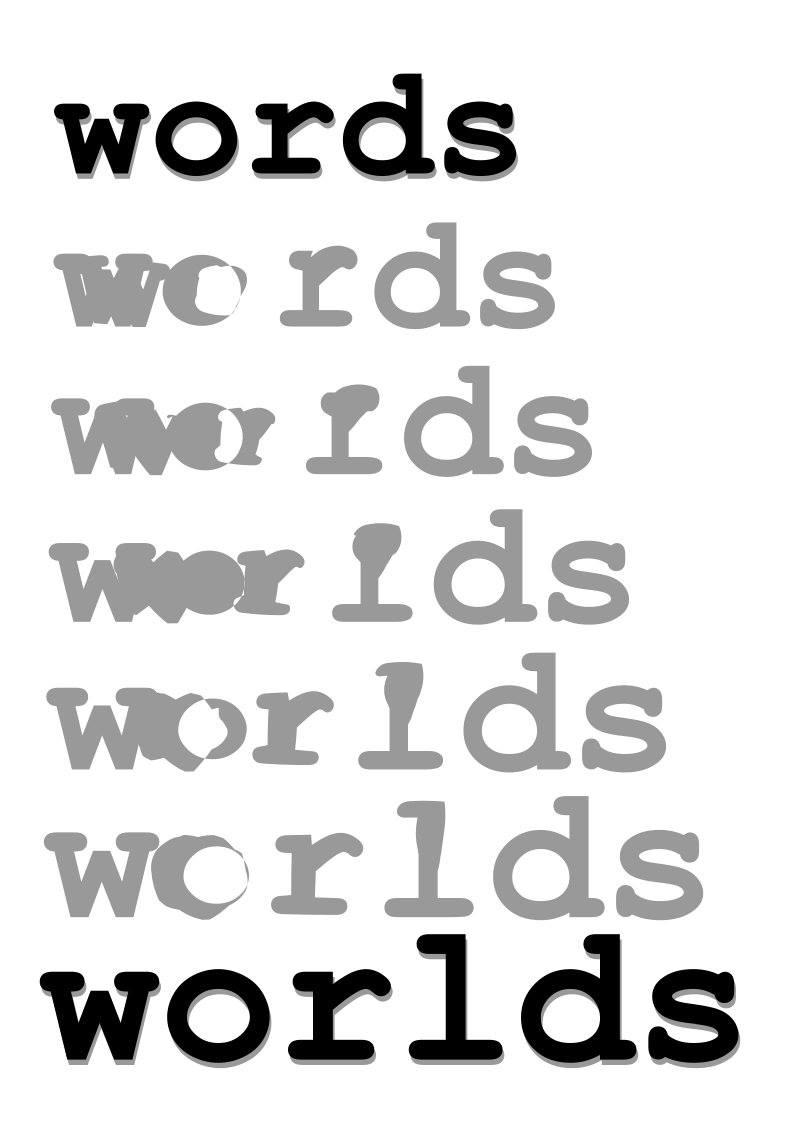
Word art words to worlds by Silvia Hartmann
The article:
Before mobile phones, writers were rewarded for writing more words.
The more words you wrote, the better you were paid.
Customers/readers would decide on the value of something written according to how many words there were.
So a short book or an ebook would be cheap, and the longer it was, the more you could charge for it.
This was also the case with printed books which needed MANY words inside to give it a "decent spine presence" on the competitive book shelves in book stores. Do you even remember those ...!!!
When the Internet came along, and ebooks and articles, blogs, it was still the same. The longer the article, the better.
And then ... the mobile phones came along.
And they disrupted writing in the 21st Century like nothing else had ever disrupted writing before.
Now, people weren't touch typing, they were thumbing.
They were txting and sxting.
They didn't want to read long articles any longer.
Their stress levels were at a whole new high with all the social media palaver and the chirping and buzzing that never stopped and never went away.
They wanted short words, short headlines and pictures to fit into a matchbox. Do you remember what that used to be ..?
Memes and bitesize bits of news, fake or otherwise.
And that left all the writers with a giant WTF.
ALL their training, ALL their experience, ALL their skills and knowledge that had worked for them in the past went POOF.
And they saw uneducated, illiterate 15 year olds run off with millions of subscribers on youtube when their carefully created, well thought out (books, articles, ebooks, blog posts etc.) were dying on the vine.
Some became motorcycle mechanics and others got a job in the rope factory in desperation.
Others tried to round up enough old people who still read, buy and can actually understand a full length article or book to make it work.
A shrinking pond with ever fewer fish under the brutal summer sun that never sets now ...
So what's the future of writing in the 21st Century?
Well now ...
Story telling is still very popular. Indeed, those uneducated 15 year olds with the millions of subscribers, they are telling THEIR STORIES but they're not writing.
They're talking directly to their audiences.
YAIKS! cries the writer, if I wanted to be in front of an audience and actually talk to them, I wouldn't be a fuck1ng writer in the first place!!!!
I hear you, my friend.
It's a wonderful thing to be alone with your thoughts and to be able to express them freely, flowing along, without anyone interrupting you all the time.
It is.
I love it too.
But ever since DragonLords in 2012, where I wrote a novel basically in a chat room, I've been aware that times, they are a'changing.
It's not about the words anymore, or not primarily about the words.
It's about THE MESSAGE.
The story.
I would hold that writers are writers because they have a story to tell.
A story to share.
Many stories, even.
I believe that here is where the writers need to make their stand.
Everybody needs stories.
There is a dire need for more stories, and particularly, for NEW stories, different stories, stories of enlightenment.
Perhaps the time has come to re-consider the idea of a writer being a "writer of words."
Or even a "writer."
There are many ways in which stories can be told.
Perhaps having less words now is a good thing. It may focus the mind on THE MESSAGE.
Perhaps new and radical "story telling" (NOT "writing"!) styles may emerge.
Perhaps we can re-assess the language that we use so it transmits more information more precisely, and more quickly.
It's an interesting challenge.
I guess we shall have to wait and see ...
#writinginthe21stcentury
Silvia Hartmann, March 24th, 2019